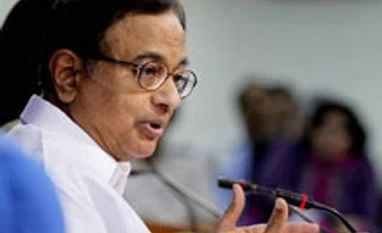Tax officers are reportedly asking companies to make higher advance tax payments and, if their actual profits turn out to be lower than projections, take refunds next year. If refunds are high, this would mean an extra burden on the next government, as the finance ministry pays interest at 0.5 per cent per month, or six per cent a year, on refunds to taxpayers. For companies, this means the money that could have been invested elsewhere lies idle.
| FINANCIAL JUGGLERY |
| INCOME Direct tax collections: Companies asked to pay higher advance tax but Rs 6,68,108-crore direct tax target might still not be met Dividends & profits: Budget estimate of Rs 73,866 crore could be surpassed, with PSUs under pressure to declare interim dividend for FY14 in January EXPENDITURE Refunds: Refunds for income tax, central excise and service tax might slow down and come only in the next financial year Subsidies & funds: Additional demand from oil marketing firms and govt departments are being rolled over to next year |
Companies make advance tax payments in four instalments — in June, September, December and March. For the quarter ended December 2013, the government’s advance tax mop-up grew 8.8 per cent over the same quarter the previous year, compared with seven per cent in the year-ago period. The payments in March quarter are expected to be even higher, given that the tax department has to collect a little more than Rs 2.5 lakh crore in the remaining three months to meet the Rs 6.68-lakh-crore Budget target.
It is learnt that while refunds for income tax, central excise and service tax have also been moderated by the finance ministry, higher advance tax payments are an arrangement between the taxpayers and the local tax commissioners.
The finance ministry, however, officially denies any attempt to hold back refunds or putting pressure on companies for higher advance tax to rein in fiscal deficit.
“When the date for advance tax payment approaches, we call taxpayers and ask them to pay their dues, so that we can meet our target. We don’t ask them to park funds with us,” said a spokesperson for the Central Board of Direct Taxes.
Some corporate executives, when contacted, said they were not aware of tax commissioners’ demands for higher advance tax but expressed apprehension over getting timely refunds.
A senior executive with a Mumbai-based public-sector bank said there were indications companies might have to pay more tax than usual in the fourth quarter, as the tax administration was facing higher pressure to meet targets this time.
Also, public-sector undertakings have been asked to make interim dividend payments for the year to end on March 31, 2014, this year itself. Dividend payment for a financial year is usually made in the first quarter of the next financial year, after declaration of profits. (With inputs from BS Mumbai team)
But after the finance minister held a meeting with government-rum companies last week, Coal India on Monday announced a special dividend of Rs 29 a share; this will fetch the government Rs 16,485 crore.
“PSUs and state-run banks have been asked to make part payment of dividends this month itself, based on the projections for the entire year’s profits. Higher advance tax is being collected from companies, while all expenditure has been curtailed,” a finance ministry official said, asking not to be named, adding this could put pressure on the next government, which would inherit a stressed balance sheet.
Subsidies and any extra fund allocation to ministries, on the other hand, are being rolled over to next financial year. The government is not likely to make any extra allocation this year, despite oil marketing companies showing an increase in underrecoveries (notional loss for selling fuel below the prevailing market price).
Chidambaram had in 2013 sold the magical number of 4.8 per cent to foreign investors, who had raised doubts over India’s fiscal consolidation plan. But, with lower tax and non-tax income and higher subsidies, the task would have been difficult. So, these income-generating and expenditure curtailing measures had to be adopted, said officials.
(With inputs from BS Mumbai team)
)